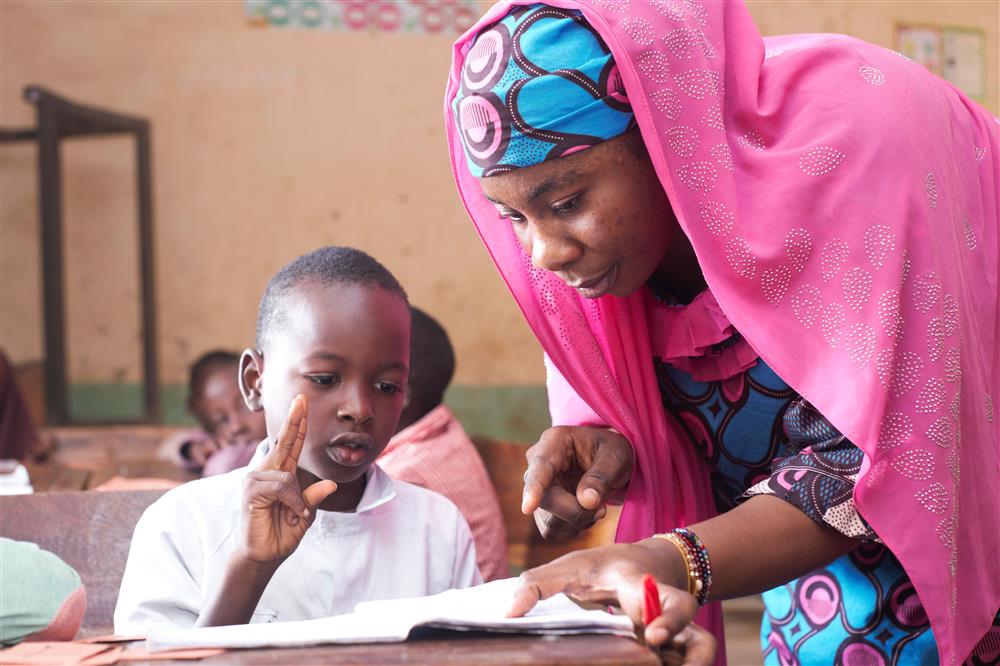How to include regional DPOs in education programmes funded by international development agencies
- Solution
- Inclusive Futures
- Country of Implementation
- Bangladesh
- In cooperation with
- the International Disability Alliance (IDA)
- Start Year
- 2018
- First published
- 03.12.2023

Solution details
“Our role as a DPO is to bring about more inclusion and increased participation of persons with disabilities.” Risikat Toyin Muhammed, Executive Director, Women with Disability Self-Reliance Foundation, Nigeria
Sightsavers, a UK-based international development NGO, together with the International Disability Alliance, led a consortium of 11 organizations to execute Inclusive Futures, an inclusive education initiative operational in Bangladesh, Kenya, Nepal, Nigeria, and Tanzania. Inclusive Futures integrates children with disabilities aged 4–14 into mainstream schools by putting regional disabled people’s organizations (DPOs) in the middle of operations. Designed to serve as a role model for international development funding, Inclusive Futures enrolled 1,607 children into educational programmes across the five countries in 2021 and 2022.
Problems Targeted
Many international development projects that do not involve local DPOs lead to unsustainable outcomes and a lack of local ownership.
Solution, Innovation and Impact
The Inclusive Futures – Disability Inclusive Development Programme works with a consortium of 11 organizations, led by Sightsavers and the International Disability Alliance, with the aim of integrating children with disabilities aged 4–14 into mainstream schools. Children with disabilities, their parents, and especially their representative local DPOs play a central role throughout the entire project cycle, which is implemented in Nigeria (Jema LGA, Kaduna), Kenya (Homa Bay, Kakuma Refugee Camp), Bangladesh (Narsinghdi, Sirajgonj), Nepal ( Bharatpur, Kalika), and Tanzania (Mwanza, Shinyanga). Based on a pilot project in Nigeria (2019–2022), Inclusive Futures works with local DPOs by: (1) co-decision-making in prioritizing interventions; (2) meaningful representation in project management; (3) provision of resources for the DPOs engagement; and (4) empowering DPOs to lead in advocating with government and other authorities. As a result, children with disabilities have increased enrolment and retention rates in mainstream schools. Children with severe and complex disabilities who are not in school are provided a pathway to enrol and study in mainstream schools. Further, teachers are supported to identify children with disabilities and to develop individualized learning plans for them; and schools adapt improved physical accessibility and governance structures to ensure the participation of people with disabilities in decision-making.
Funding, Outlook and Transferability
The Inclusive Futures programme began in 2018 and has significantly grown, thanks to $10 million in funding from the UK’s Foreign, Commonwealth & Development Office via Sightsavers. Since Inclusive Futures is designed to change the practices of other development funding agencies and providers, learning resources are broadly shared and available from Sightsavers and the Technical Advisor Group of the IDA. (Awardee 2024)
Media
Pictures
Related information
- Connections
- 1
-
People